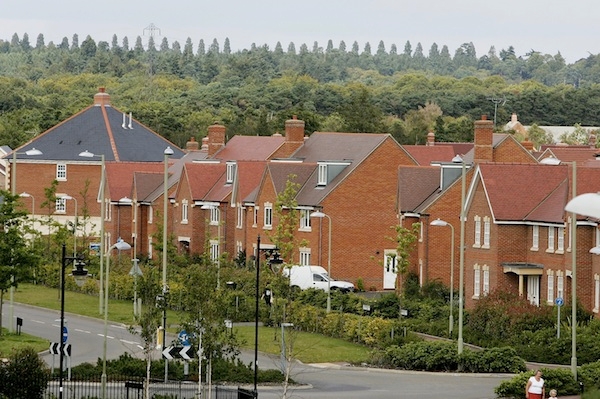For the first time since 2008, expectations for house sales have dipped into negative territory, the Royal Institution of Chartered Surveyors said. Nearly 40 per cent of surveyors told RICS they expect London property prices to fall over the next three months.
Meanwhile, the Council of Mortgage Lenders reported yesterday that home-owners borrowed £8.7 billion for house purchases in February, up 4 per cent month-on-month and 21 per cent year-on-year. They took out 48,000 loans. First-time buyers borrowed £3.4 billion, up 21 per cent on February last year.
Paul Smee, director general of the CML, said: ‘In 2016, there have been substantial increases in house purchase and remortgage activity year-on-year. This reflects the sluggish market in early 2015, perhaps driven by election uncertainties. Buy-to-let has also seen substantial year-on-year increases, with particularly strong growth in remortgaging, a pattern which we have seen in the buy-to-let sector the past six months. Activity has been boosted by landlords seeking to complete purchases before tax changes in April. We do not expect activity to show such strong year-on-year growth later in the year.’
Unsecured consumer borrowing is growing at its fastest rate for 11 years as supermarkets and car dealers offer more credit to customers and water down their credit-scoring criteria, The Times reports. The annual growth rate in the stock of consumer credit rose to 9.3 per cent in February, its highest since before the financial crisis, according to the latest Bank of England quarterly credit conditions review. Lending standards had loosened significantly, the Bank said, suggesting that concerns are growing over the danger of vulnerable borrowers getting into difficulty and of lenders being weakened by defaults. Supermarkets have been undercutting high street banks, with Sainsbury’s Bank offering personal loans of up to £15,000 at a rate of 3.3 per cent. Tesco Bank is offering loans to its millions of ClubCard customers at 3.4 per cent, while M&S Bank is charging 3.5 per cent. The Daily Mail reports that hundreds of thousands of pensioners who snapped up National Savings & Investments’ three-year bond last year could face a tax nightmare. They may be forced to pay tax on interest they haven’t even received. Basic-rate taxpayers could have to shell out more than £160 in tax on interest they earn in the first two years – even though they won’t get their hands on it until the three years are up.Looking ahead to today, the Bank of England’s monetary policy committee will announce whether it has left borrowing costs at the record low of just 0.5 per cent, and whether it has altered its quantitative easing stimulus programme. Economists don’t expect any changes, even though inflation has just risen to a 15-month high of 0.5 per cent.
According to The Guardian, the government is likely to favour the rich in the next budget with further reductions in capital gains tax rates, despite concerns about inequality, according to Paul Johnson, director of the Institute for Fiscal Studies think tank. Inheritance tax could be cut further in the near future, said Johnson, because it was deeply unpopular as more households were drawn into the net. He said: ‘The recent cut in capital gains tax was only limited in scope and there is far more the Chancellor could do to reduce the amount people pay when they sell an asset.’





Comments